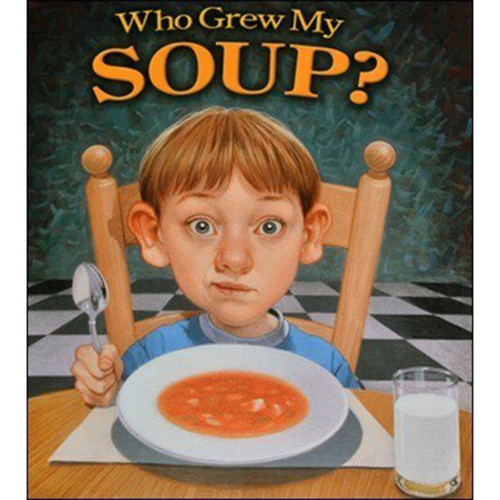Ag Today (Available Digitally)
Agriculture is everywhere! From the time we wake up in the morning until we end our day at night, we have encountered agriculture through the food we eat, the clothes we wear, and the fuel we use for transportation. Ag Today is a great reading supplement for upper elementary students to learn about agriculture. The six issues correlate with the themes of the National Agricultural Literacy Outcomes and can be integrated into science, social studies, and language arts curriculum. Each reader provides real-world connections to STEM and makes learning relevant for students in becoming agriculturally literate. Lessons linked to the readers can be viewed from the National Agricultural Literacy Curriculum Matrix.
Issue 1: Agriculture is Everywhere!
Describes the connections humans make daily with agriculture from business and science to the practices of growing and selling row crops and animals to be used for food, fiber, and fuel. View Issue 1 | View Issue 1 Teacher Guide
Issue 2: Food, Keeping us Fueled for an Active Lifestyle!
Learn about the healthy and tasty food that farmers grow to help humans maintain a healthy diet. Follow the process from farm to plate and learn about serving sizes, food safety, and USDA's MyPlate. View Issue 2 | View Issue 2 Teacher Guide
Issue 3: Our Invaluable Natural Resources
Read and understand the story of how plants and animals raised on farms depend on natural resources to live such as the sun, soil, water, and air. Learn methods farmers use to protect and preserve these natural resources while still providing the food, fiber, and fuel we need to live. View Issue 3 | View Issue 3 Teacher Guide
Issue 4: Agriculture in Society
Describe how agriculture plays a significant role in different geographic areas such as small towns, large cities, and local, state, and federal government. It also places a focus on where food comes from and why different foods are grown in different states. View Issue 4 | View Issue 4 Teacher Guide
Issue 5: Science, Technology, Engineering, and Math (STEM) Can Sustainably Feed the World!
Learn the term sustainability and what that means to farmers who need to produce 60% more food with the same amount of land in order to feed a growing world population. Students will learn what byproducts are and how they are used, how food packaging has decreased waste, and how farmers use technology such as various tools, robots, and hand-held devices to improve their efficiency. View Issue 5 | View Issue 5 Teacher Guide
Issue 6: Plants & Animals...Providing Food, Fiber, and Energy!
Explore the facts about renewable and non-renewable resources that make different byproducts humans need for survival. Learn how agriculture provides energy through biofuels and hydropower, fiber through cotton and wool, and various food products from plants and animals that have been improved through biotechnology and crossbreeding. View Issue 6 | View Issue 6 Teacher Guide




